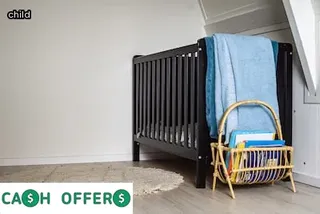Navigating the probate process in Pennsylvania can be a daunting task, but understanding the basics of how it works and simplifying the process can make it much easier. Probate is the legal process of distributing a deceased person’s assets to their heirs or beneficiaries after they pass away.
In Pennsylvania, the executor of an estate must file for probate with the court and complete several steps in order to transfer ownership of assets. This includes filing paperwork, settling debts and taxes, and ensuring that assets are distributed according to state law.
It’s important for those selling a house in probate to understand what is involved in this process so they can be prepared when selling their property. First, a Notice of Probate must be filed with the court indicating that an estate exists and that an executor has been appointed.
The court will then issue Letters Testamentary which gives authority to the executor to manage and settle the estate. This includes taking inventory of all assets, valuing them, paying all debts with funds from the estate, notifying creditors, and making sure all taxes are paid before closing on any real property sale.
Finally, once all liabilities have been settled, remaining assets can be divided among heirs according to state laws and regulations. Knowing these steps ahead of time can help simplify probate listings in Pennsylvania and make selling a house much easier.

In Pennsylvania, there are certain types of assets that are exempt from the probate process. These include any asset that has a designated beneficiary such as life insurance policies, retirement accounts, and bank accounts with a payable on death (POD) or transfer on death (TOD) designation.
Additionally, property owned jointly with right of survivorship or held in a living trust is not subject to probate. While these assets are generally exempt from probate, you should still consult an attorney who specializes in Pennsylvania probate law to make sure your specific situation is accounted for.
It is also important to remember that when it comes to selling a house during probate proceedings in Pennsylvania, only certain individuals have standing to sell the house, so it is important to understand and comply with the state’s laws in this regard.
The probate process can be a complex and lengthy one, particularly in the state of Pennsylvania. However, with some understanding and planning it is possible to streamline the probate process for small estates within the state.
There are certain financial thresholds that determine when an estate qualifies as small, and for those estates the probate process can be simpler than for larger ones. This involves filing fewer documents with the court and typically completing the process in less time.
In addition to understanding these financial thresholds, it is important to understand what exactly needs to be done during the probate process such as filing an inventory of assets, paying taxes owed by the deceased person’s estate and ensuring all debts have been paid before distributing assets among heirs. The complexity of this process varies from case to case depending on several factors including whether or not there is a will in place.
Understanding how to navigate this process can help ensure that it goes smoothly, freeing up more time to focus on the business of selling a house in probate.

Selling a house during probate in Pennsylvania can be a complicated process. Understanding the process is crucial to ensure that everything goes smoothly and quickly.
The first step of the probate process is to obtain the necessary documents from the court. These documents will outline all of the legal requirements for selling a house during probate in Pennsylvania.
Next, you must identify and contact all of the interested parties, such as heirs and creditors, who may have an interest in the property being sold. Then it is important to calculate any applicable taxes or fees related to the sale of the home.
After this has been completed, you should then determine whether there are any liens on the property that need to be paid off prior to closing. Lastly, it is essential to prepare all necessary paperwork for closing and complete the transfer process with the county clerk's office.
Following these steps closely will help ensure a successful sale of your home during probate in Pennsylvania.
In Pennsylvania, there are three different types of probate when selling a house: informal, formal, and supervised. Informal probate is the most straightforward and cost-effective option for an estate.
It does not require court involvement; instead, the executor will file a petition with the Register of Wills in the county where the decedent resided. This type of probate can be used if all beneficiaries agree on how to divide the assets of the estate.
Formal probate is more complex and involves filing a Petition for Probate with the local court. The court will appoint an executor and monitor proceedings to ensure that all laws are followed throughout the process.
Supervised probate is similar but requires court oversight to provide additional protection for creditors or other interested parties in the estate. All three types of probate require certain paperwork including death certificates, wills, inventories, appraisals, and tax returns to be filed before any assets can be distributed to heirs or sold on the open market.
Understanding these different types of probate can help ensure that all processes are handled properly so that an estate's assets can be properly distributed according to state law.

When selling a house in probate in Pennsylvania, meeting deadlines is essential. The executor of the estate must complete a number of tasks within a specific window of time, including filing the necessary paperwork with the court and providing notice to heirs.
An accurate probate listing must also be created and distributed to potential buyers. Following the timeline established by the court is crucial to ensure that all requirements are met and avoid costly delays or other legal issues.
It is important to understand each step in the process before getting started so that all deadlines are met properly. Knowing what documents must be filed and when can help sellers navigate this complex process more easily, as well as make sure that all assets will be distributed according to the wishes of the deceased.
In Pennsylvania, obtaining and filing the necessary forms for estate settlement can be complicated and time-consuming. It's important to understand the types of documents required and how they should be filed in order to complete the probate process.
In most cases, a Petition for Administration must be filed with the Register of Wills in the county where the deceased person resided. This petition includes information about the decedent, their assets, and any potential heirs or beneficiaries.
The executor of the estate is then appointed by the court to administer it according to Pennsylvania law. Once appointed, they are responsible for filing documents such as an inventory of assets, a list of debts owed by the estate, tax returns, and other legal paperwork necessary for closing out an estate.
To ensure everything is handled properly, it's recommended that you seek assistance from an experienced probate attorney who can advise you on all aspects of selling a house in probate in Pennsylvania.

When selling a home in probate in Pennsylvania, understanding the cost of completing the process is essential. Depending on the complexity of the estate, fees and costs can range from a few hundred to several thousand dollars.
In addition to filing fees, executors may be responsible for attorney fees and appraiser fees. In some cases, executors may also need to pay inheritance taxes or other debts before distributing assets to heirs.
Knowing these costs beforehand is key to preparing an accurate budget when selling a home in probate. Estate planning services can assist with calculating these expenses and provide guidance throughout the entire process.
When a property owner dies, the deceased's estate must go through a legal process known as probate. In Pennsylvania, a probate listing is required for selling a house in probate.
This process involves the court appointing an executor to manage and protect the estate of the deceased and ensures that all debts are paid and assets are distributed according to the wishes of the deceased. The executor will then list the home for sale in order to pay off any remaining debts or distribute any remaining assets.
The sale of the house must be approved by the court before it can close, which can take between 45-90 days depending on how quickly all parties involved respond to paperwork. During this time, it is important to research local real estate laws and regulations as well as determine an appropriate price point for selling the house in probate.
Additionally, buyers need to understand that they may have to wait longer than usual for their offer to be accepted due to court approval being necessary before closing on the sale. Understanding these details can help ensure that you have a smooth experience when selling or buying a house in probate in Pennsylvania.

In Pennsylvania, if a person dies without leaving a will, their assets are distributed according to the state's laws of intestate succession. This means that the spouse, children, parents and siblings of the deceased may be entitled to receive an inheritance from their estate.
If there are no surviving relatives, the state will take possession of any remaining possessions. It is important to understand that this process is not always straightforward and can involve significant paperwork and other legal steps.
The executor of the estate must file documents with the court in order to have any real estate or personal property appraised before it can be sold or transferred. Additionally, all debts must be settled prior to any assets being distributed.
Furthermore, parties involved in probate may need to attend hearings before a judge in order to resolve disputes or clarify ambiguities in the deceased's wishes. All these legal proceedings and requirements make it important for those involved in selling a house in probate in Pennsylvania to become familiar with the state's laws governing intestacy and probate so they can ensure they are following all applicable guidelines.
Navigating probate in Pennsylvania can be daunting, but by strategizing and being mindful of time and expenses, it doesn’t have to be overwhelming. Sellers should start by familiarizing themselves with the process of selling a house in probate, including any potential complications that may arise.
An experienced real estate attorney can provide advice on how to navigate the complexities of a probate sale. Having an understanding of local laws and regulations is also key to avoiding any delays or additional costs.
When possible, sellers should try to avoid the cost and time associated with obtaining court approval for the sale by negotiating directly with the beneficiaries or heirs. This can help expedite the process if all parties are in agreement.
Keeping these strategies in mind when going through probate in Pennsylvania can help keep time and expense to a minimum while ensuring a smooth transition for all involved.

Formal probate is a legal process in Pennsylvania that is required to transfer the ownership of property from a deceased person's estate to their rightful heirs. The court oversees the process, which starts with the filing of a petition by an executor or administrator of the estate.
This document must include a list of all assets and debts associated with the decedent. The court then issues an order that appoints the executor as the representative of the estate and grants them authority to manage and distribute its assets.
Next, creditors are notified so that they may make claims against the estate, and any taxes or outstanding debts must be paid before it can be transferred to beneficiaries. Once all creditors have been satisfied, the executor must prepare an inventory of all remaining assets and submit it to the court for approval.
Finally, once approved, these assets are distributed according to instructions laid out in the deceased's will or state law if no will exists.
Navigating through potential issues with estate settlements in Pennsylvania can be a daunting task for those looking to sell a house in probate. It is important to understand the laws and regulations in place that govern how probate listings are handled.
Understanding the complexities of estate settlements can provide clarity on how to proceed when it comes to selling a house in probate. Knowing what documents need to be submitted, who needs to approve the sale, and understanding the timeline required for approvals can all help avoid potential delays or issues with settling an estate.
Additionally, it is important to know what taxes may apply and if there are any liens or other encumbrances that must be addressed before the sale is finalized. Taking the time to research these topics can help ensure that the process of selling a house in probate is smooth and efficient.

When a house is left in a will, it must go through probate to be legally transferred to the rightful owner. If the owner lives in Pennsylvania, they may be able to avoid the lengthy and costly formal probate process by exploring alternative options.
For example, if there are no disputes regarding the inheritance of the house, informal probate can be used. This process does not require court supervision and can be done quickly and inexpensively.
Additionally, if all heirs agree to a sale of the property prior to probate, an executor or administrator can sell it without having to file a petition with the court. In these cases, the transaction should take place before distribution of assets occurs as this could make distribution impossible due to insufficient funds.
However, if there is disagreement among heirs or other parties involved in the estate sale, then formal probate is required and all actions must be approved by a judge. Understanding these alternate options can help those selling a house in Pennsylvania navigate through the complex probate process with ease.
Understanding the probate process in Pennsylvania can be a difficult and confusing process. It is important to make sure you are financially and legally prepared if you must go through formal probate.
To start, research the Pennsylvania probate laws and speak to an attorney who has experience working with probate cases. You will also need to understand the costs associated with the process, including any fees that may come up during the estate administration, such as court costs or executor fees.
Additionally, consider setting aside funds to cover any taxes that may be due on inherited property or other assets. Finally, it is important to have all of your paperwork in order before beginning the process.
Make sure all documents related to estate planning and finances are up-to-date and available for review by both family members and legal professionals. By preparing ahead of time, you can ensure that selling a house in probate is done smoothly and efficiently.

Understanding the tax implications and responsibilities associated with the Pennsylvania estate settlement process is important for anyone looking to sell a house in probate. As with all states, there are specific rules that must be followed when dealing with deceased estates, including those related to taxation.
In Pennsylvania, the executor of the will is responsible for filing a final tax return and paying any taxes owed by the estate. Additionally, any income earned from selling or renting out property owned by the estate may be subject to taxation as well.
Furthermore, inheritance taxes may need to be paid by certain beneficiaries of an estate if certain conditions are met. It's essential to understand these tax implications and responsibilities before proceeding with selling a home in probate so that you can ensure you are following the law and doing what is best for all parties involved.
When selling a house in probate in Pennsylvania, it's important to take the necessary steps to ensure that the settlement process is done properly. Common mistakes made during estate settlements include failing to follow local laws and regulations, not obtaining court approval for certain actions, not adequately valuing assets or liabilities, and not following proper protocol for transferring assets.
To avoid these mistakes, it's important to understand the laws governing probate listings in Pennsylvania and consult an experienced attorney who is knowledgeable about estate law. Doing so can help you ensure that all assets are properly valued, all legal requirements are met, and all steps taken are approved by the court.
Additionally, having an understanding of how property transfers work in Pennsylvania can help you make sure that all assets are transferred correctly during the settlement process. Taking these steps will help you avoid common mistakes made during Pennsylvanian estate settlements and expedite the process of selling a home in probate.

Navigating the complexities of estate settlements and finalizing them quickly in Pennsylvania can be a daunting task. Fortunately, there are resources available to help those navigating this process.
The first step is understanding probate listings in Pennsylvania and what is needed to sell a house when it is in probate. The probate process varies from state to state, but generally involves the submission of paperwork to the court along with filing fees, appraisal of the property and outstanding debts or estate taxes that must be paid before the final sale of the house can take place.
Knowing what documents are necessary, who needs to sign them and where they need to be filed are all important parts of this process. Additionally, working with an experienced real estate agent familiar with the local market can make all the difference in finding a buyer quickly and ensuring that all paperwork is properly completed.
With these resources on hand, those facing probate proceedings can feel more assured that their final settlement will go as smoothly as possible.
When a family is going through the difficult process of probate in Pennsylvania, it can be an emotionally draining time. Showing sympathy and comforting grieving families during this period is important.
It's best to respect the family's decisions and maintain a sense of sensitivity towards their situation. Offer support and understanding without judgement or unsolicited advice.
Respect the privacy of the family by not asking too many questions about their circumstances. Let them take their time to grieve and process what they are going through without pressuring them for decisions or outcomes.
Allow them to have control over how they manage the process; don't try to rush them or make decisions on their behalf. Showing empathy, kindness, and patience will go a long way in helping a grieving family navigate the probate process in Pennsylvania.
Probate property in Pennsylvania is property that has been left to an individual by a deceased person. This can include real estate, personal items, or money.
The process of transferring the ownership of probate property from the deceased person to the new owner is called probate administration. In order for a house or other real estate to be sold in Pennsylvania, it must first pass through the court-supervised administration of probate.
This process typically involves appointing a personal representative to handle the formalities and paperwork associated with transferring ownership of the property from the deceased person to their heirs or beneficiaries. During this process, potential buyers may be able to view and bid on the property as part of a probate listing.
Understanding how and when these listings occur can help simplify what can otherwise be a complicated process for those looking to purchase a house in Pennsylvania that is part of an estate.

No, not all estates have to go through probate in Pennsylvania. Estate administration generally requires probate if the deceased has assets titled in his or her own name and not held with a beneficiary designation or in trust.
However, there are some exceptions which allow an estate to be administered without probate in some cases. Small estates of less than $50,000 may be able to avoid probate altogether, while larger estates may still qualify for simplified procedures that don't require full probate proceedings.
In addition, certain types of property such as real estate can pass outside of the formal probate process when certain conditions are met. Understanding the laws governing probate in Pennsylvania is essential for selling a house in probate as different rules apply depending on how an estate is administered.
In Pennsylvania, probate is the legal process of transferring a deceased person's assets and debts to their heirs. To understand how to sell a house in probate, it is important to first understand how to find out if a will has been probated.
Fortunately, this information is readily available online through the Pennsylvania Department of Revenue. In order to gain access, you'll need to provide basic information about the deceased individual and their estate.
Once you have this information, you can search the Department of Revenue's database for any probate listings that may apply. There are also helpful resources available from the County Clerk's office and other local government offices that can provide additional guidance on understanding and navigating the probate process in Pennsylvania.
In Pennsylvania, certain assets are exempt from probate, making it important for anyone selling a house in probate to understand the process. Generally speaking, most of an individual's personal property is exempt from probate.
This includes items such as clothing, furniture, vehicles, jewelry and other household items that do not exceed $11,250 in value. Additionally, certain jointly owned assets may be exempt from probate if both parties have equal ownership rights.
Examples of this include joint bank accounts or real estate with two owners listed on the title deed. Beneficiaries who are named in a will may also receive their inheritance outside of the probate process.
Finally, any asset that has a designated beneficiary listed on the paperwork is not subject to the probate process and will pass directly to the beneficiary upon the owner's death. Knowing which assets are exempt can help make selling a house in probate a smoother and easier process for all involved parties.
A: In Pennsylvania, a Probate Listing is a document that outlines the details of an estate or trust, including any Irrevocable Trusts, Revocable Trusts, and any other applicable elements of the Law of Trusts or Trust Funds.
A: A probate listing in Pennsylvania is a legal procedure that involves the Surrogate's Court handling the distribution of assets from a deceased person's estate. This includes assets held in Inter Vivos Trusts, Revocable Trusts, and other trust funds established under the law of trusts.

A: A probate listing in Pennsylvania is a document that details the division of assets among devises (people to whom property has been bequeathed), devisees (recipients of those bequests), legacies (gifts given from an estate), and testamentary trusts (trusts set up in a decedent’s will).
A: A probate listing in Pennsylvania regarding tangible personal property, personalty, fiduciaries and fiduciary is a document that provides details of the assets owned by an individual or organization that are subject to probate law. This document lists all the assets of the deceased and assigns them to a designated fiduciary responsible for administering and distributing them according to the terms of the will or trust.
A: A Probate Listing in Pennsylvania with regard to Fiduciary Relationships refers to the legal relationships between parties with respect to their rights and responsibilities as regulated by Pennsylvania Law. These relationships include matters such as Trusts, Estates, Guardianship, and other fiduciary obligations.

A: In Pennsylvania, an appeal from a probate listing may be taken to the appropriate Appellate Court. The appeal must be filed within 30 days of the order or decree being appealed. The appellate court will hear arguments from both parties and render a decision on whether to affirm or reverse the order or decree.
A: A probate listing in Pennsylvania regarding intestate share, attorneys, witnesses and orphans outlines the rights and responsibilities of those involved. It will explain how assets are divided among heirs if an individual dies without a will (intestate), provide details about the role of attorneys in administering the estate, outline the requirements for witnesses to sign documents related to the estate and clarify the rights of any orphans who may be affected by the case.
A: In Pennsylvania, a probate listing with regard to Powers of Attorney and Durable Powers of Attorney outlines the legal implications and authority behind the signing of these documents. These documents grant an individual the right to act on behalf of another person in certain circumstances. It is important for individuals to understand all the rights and responsibilities associated with granting someone else power of attorney before signing any documents.

A: A probate listing in Pennsylvania is a legal process where the assets of a deceased person are distributed according to their Last Will and Testament or, if there is no valid will, then as dictated by the laws of intestacy. This includes Irrevocable Trusts, Revocable Trusts, the Law of Trusts and Trust Funds, devises, devisees, legacies, testamentary trusts, tangible personal property (personalty), fiduciaries and fiduciary.
A: Selling a property that is part of an estate through probate may require paying estate taxes, income taxes, and capital gains taxes. The executor of the estate is responsible for filing all appropriate tax returns and making sure the beneficiaries receive their inheritance without any additional taxes.
A: A probate listing in Pennsylvania is a record of all assets, liabilities, debts, and other financial matters related to an estate. It typically includes information on irrevocable trusts, revocable trusts, the law of trusts and trust funds, devises, devisees, legacies, testamentary trusts, tangible personal property, personalty, fiduciaries and fiduciary.

A: A probate listing in Pennsylvania is a process where a deceased person's estate is sold, either by their will or the court's decision. The sale must be approved by the court and can involve irrevocable trusts, revocable trusts, the law of trusts and trust funds, devises, devisees, legacies, testamentary trusts, tangible personal property, personalty fiduciaries and fiduciary.
A: A probate listing in Pennsylvania with regard to houses involves the legal process of administering the estate of a deceased person. The house must be appraised and listed for sale, typically by a court-appointed executor or administrator, after which it will be sold according to the terms of the deceased’s will or state law.
A: A probate listing in Pennsylvania is used to document and record the transfer of property through succession, as dictated by trust documents, wills, or other legal documents. It also provides information on who holds title to the real estate, who can act as a fiduciary to transact business on behalf of a deceased individual's estate, and who may be entitled to any inheritance from the estate.

A: A Guide to Selling Property in Pennsylvania through Probate Listing provides information on the legal requirements and procedures related to the sale of real estate or tangible personal property that is owned by an estate or trust. The guide outlines the steps necessary for a successful probate listing, including submitting documents to the court, obtaining court approval of the sale, advertising the property for sale and completing the closing process.
A: A probate listing in Pennsylvania with regard to a house involves transferring the ownership of the house from the deceased owner to the heirs specified in their will. This process involves filing documents with the court and obtaining approval from a judge before the transfer can occur.
A: A Probate Listing in Pennsylvania with regard to Irrevocable Trusts, Revocable Trusts, the Law of Trusts and Trust Funds is a legal process that an executor or administrator must go through in order to transfer the assets of a deceased person's estate. This includes devises, devisees, legacies, testamentary trusts, tangible personal property, personalty, fiduciaries and fiduciary. The purpose of the listing is to properly identify and value any assets that may need to be sold in order to settle the estate. A Guide To Selling Property In Pennsylvania Through Probate Listing can provide guidance on what is required to sell a house in probate.

A: For a property to be listed as part of an estate plan in Pennsylvania, it must first pass through probate. This means that the decedent's will must be filed in the county court and any creditors or debtors of the estate must be paid before the property can be listed for sale. The executor or administrator of the estate is responsible for overseeing this process, which includes filing all necessary paperwork with the court and ensuring that all legal requirements are met.
A: A probate listing in Pennsylvania with regard to Executors and Inheritance Tax involves the process of determining the validity of a deceased person's will and ensuring that their assets are distributed according to their wishes. This includes calculating any inheritance tax due and ensuring the executor has the legal authority to act on behalf of the deceased.
A: In order to list property for probate in Pennsylvania, the executor or administrator must be able to present proof of title and a death certificate. The executor or administrator must also obtain letters of administration from a court of competent jurisdiction. Additionally, inheritance and estate taxes must be paid within nine months of the decedent’s death. The executor or administrator is also required to provide an accounting of all assets and liabilities associated with the estate.

A: Probate listings in Pennsylvania regarding life insurance policies include determining the policy's beneficiary, filing claims and notifications with the carrier, and accounting for any funds received.
A: Probate listing in Pennsylvania requires that certain legal documents, such as deeds, statutory statutes and privacy policies, be filed with the court. These must be properly executed and authenticated according to the laws of Pennsylvania in order for the probate listing process to be valid.
A: If there is no will, the value of the estate will be distributed to those named in the intestate succession laws of Pennsylvania.